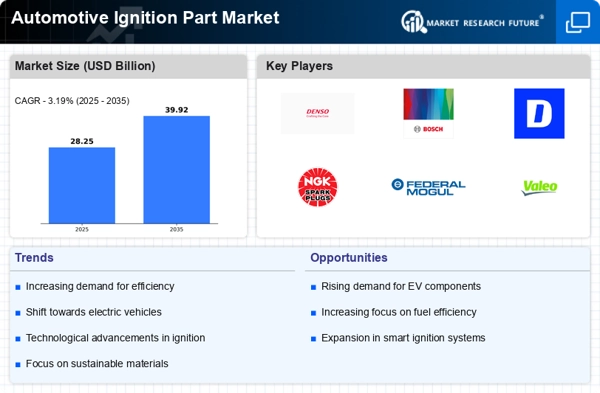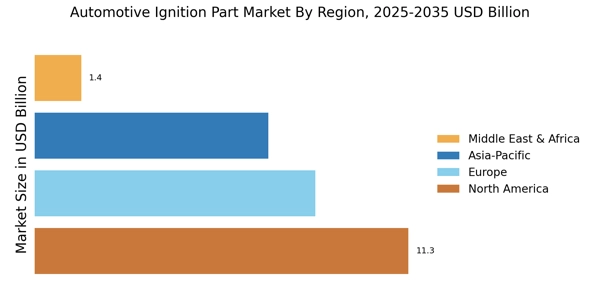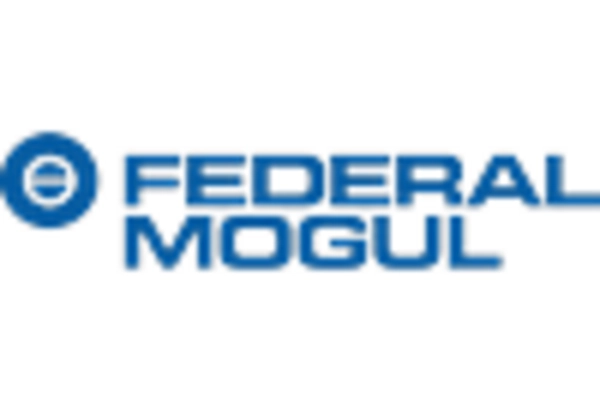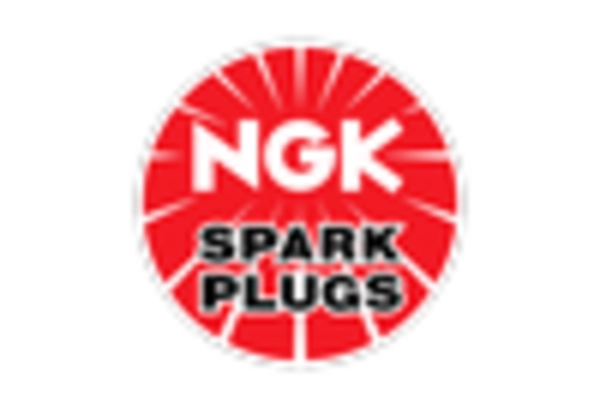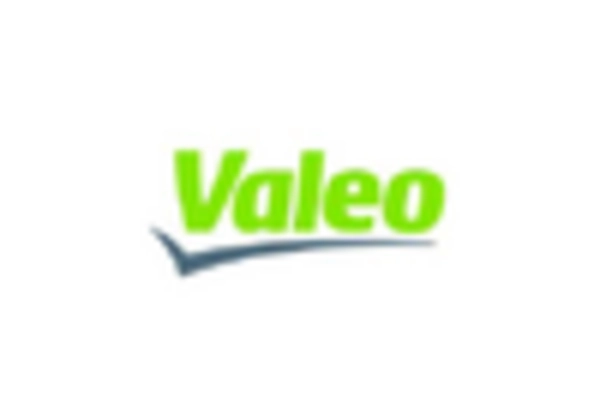Increasing Vehicle Production
The automotive ignition part market is experiencing a surge in demand due to the increasing production of vehicles worldwide. As manufacturers ramp up their output to meet consumer demand, the need for reliable ignition systems becomes paramount. In 2025, vehicle production is projected to reach approximately 90 million units, which directly correlates with the growth of the automotive ignition part market. This increase in production not only boosts the demand for ignition components but also encourages innovation in design and technology. Manufacturers are likely to invest in advanced ignition systems that enhance performance and fuel efficiency, thereby driving the market further. The automotive ignition part market is thus positioned to benefit from this upward trend in vehicle production, as more vehicles on the road necessitate the availability of high-quality ignition parts.
Growth of Electric and Hybrid Vehicles
The automotive ignition part market is undergoing a transformation due to the increasing prevalence of electric and hybrid vehicles. While traditional ignition systems are less relevant in fully electric vehicles, the hybrid segment still requires advanced ignition components to optimize performance. As the market for electric and hybrid vehicles expands, manufacturers are likely to adapt their product offerings to cater to this new demand. In 2025, the sales of electric and hybrid vehicles are expected to rise significantly, which may lead to a shift in the types of ignition parts required. This evolution presents both challenges and opportunities for the automotive ignition part market, as companies must innovate to meet the needs of a changing automotive landscape while maintaining their core offerings for conventional vehicles.
Regulatory Compliance and Emission Standards
Regulatory compliance and stringent emission standards are driving changes within the automotive ignition part market. Governments worldwide are implementing stricter regulations aimed at reducing vehicle emissions, which in turn influences the design and functionality of ignition systems. Manufacturers are compelled to develop ignition components that not only meet these regulations but also enhance overall vehicle efficiency. In 2025, the automotive ignition part market is expected to see a rise in demand for ignition systems that comply with new emission standards, as consumers and manufacturers alike prioritize environmentally friendly solutions. This regulatory landscape presents a unique opportunity for innovation, as companies that can create compliant and efficient ignition systems are likely to gain a competitive edge in the market.
Technological Innovations in Ignition Systems
Technological innovations are reshaping the automotive ignition part market, as manufacturers strive to develop more efficient and reliable ignition systems. Advancements such as smart ignition technology and integrated ignition control systems are becoming increasingly prevalent. These innovations not only improve engine performance but also enhance fuel efficiency and reduce emissions, aligning with global sustainability goals. In 2025, the market for advanced ignition systems is projected to grow significantly, driven by the automotive industry's focus on reducing environmental impact. As a result, the automotive ignition part market is likely to witness a shift towards more sophisticated ignition solutions that cater to the evolving needs of consumers and regulatory standards. This trend indicates a promising future for manufacturers who invest in research and development to stay ahead in this competitive landscape.
Rising Consumer Awareness of Vehicle Maintenance
Consumer awareness regarding vehicle maintenance is on the rise, significantly impacting the automotive ignition part market. As vehicle owners become more informed about the importance of regular maintenance, they are increasingly prioritizing the replacement of worn-out ignition components. This trend is likely to lead to a higher demand for aftermarket ignition parts, as consumers seek to enhance their vehicle's performance and longevity. In 2025, the aftermarket segment is expected to account for a substantial share of the automotive ignition part market, driven by consumers' desire to maintain their vehicles in optimal condition. Furthermore, educational campaigns by automotive organizations and manufacturers are likely to contribute to this growing awareness, thereby fostering a culture of proactive vehicle maintenance that benefits the ignition parts market.


